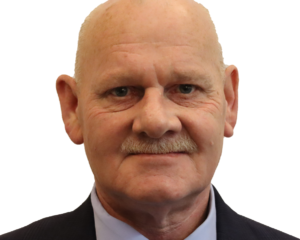Union calls for national care service as Shaw Healthcare’s new terms hit lowest paid workers
A care home firm, Shaw Healthcare, has come under fire as it faces allegations of pressuring its employees to accept new terms and conditions or face termination. The changes imposed by the company have been described by the union as “Dickensian” and have a particularly adverse impact on some of the lowest paid workers.
Shaw Healthcare justified the measures by emphasising that the majority of its staff had accepted the revised terms, which they deemed essential to ensure the viability of their contract with Powys council. However, one worker, who preferred to remain anonymous for fear of losing her job, admitted to having no choice but to accept the changes, even though they negatively affected her pay.
“We’re paid £10.90 an hour at the moment,” she explained. “If you’re on a seven-hour shift, that’s now a seven-and-a-half-hour shift, and you’ve got to have a break that’s unpaid. And if you don’t get that break, you’re effectively working for £10.70 or so an hour. For £10.90, I could go and sit on the till at Morrisons or Tesco’s without the responsibility of other people’s lives in my hands.”
Shaw Healthcare’s altered conditions include the removal of paid lunch breaks for staff and the implementation of charges for meals consumed at work. The half-hour break will be replaced with two paid 15-minute handovers at the start and end of shifts. Abigail Katsande, the firm’s regional operational director, stated that the changes were proposed to align Powys’ residents’ wellbeing with the rest of Shaw’s practices and to conform to the best care standards in the UK.
Mark Turner from the trade union Unison condemned the company’s tactics as bullying. In response to the allegations, Shaw Healthcare explained that the paid handovers were standard practice in the NHS and were considered best practice for elderly care. They also highlighted that the cost of cooked meals at their care homes was heavily subsidised, with staff only required to make a nominal payment. Furthermore, Shaw Healthcare asserted that they paid their employees the “real living wage,” which was 48p higher than the national living wage, and offered tax-free bonuses of £1,250 to full-time staff.
Linda, one of the workers affected by the changes, expressed her concern, saying, “They are running the business; they are also looking after their service users, and they should be looking after the staff because you can’t run a business if you haven’t got the staff to run it for you.”
Unison has written a letter to Powys council, denouncing what they perceive as bullying tactics and urging the council to address the issue. Unison also contacted the Welsh government’s deputy minister for social care, Julie Morgan, arguing that the care commissioning process has failed and that profit-driven motives hinder improvements in care services in Wales.
Linda, despite accepting the new terms and conditions, shared her intentions of seeking alternative employment. She confessed, “I love my job, I love my residents, and the people I work with are absolutely fantastic. But that’s about the only thing that’s keeping me there at this moment in time.”
In February 2022, Deputy Minister Julie Morgan established an expert group to explore the steps necessary for the creation of a national care service, as part of Welsh Labour’s cooperation agreement with Plaid Cymru. Ms. Morgan announced in November 2022 that the panel had made extensive recommendations, which would be thoroughly considered in light of the challenging financial situation.
As the controversy surrounding Shaw Healthcare’s treatment of its staff intensifies, calls for a national care service grow louder, with hopes of protecting the rights and welfare of care workers and improving the quality of care services in the country.






